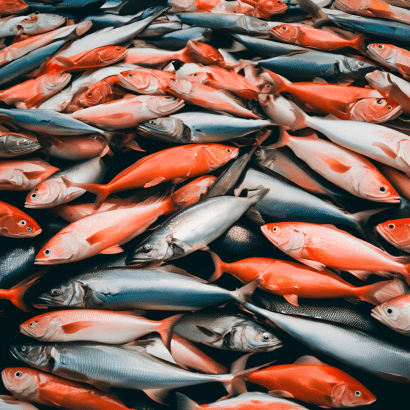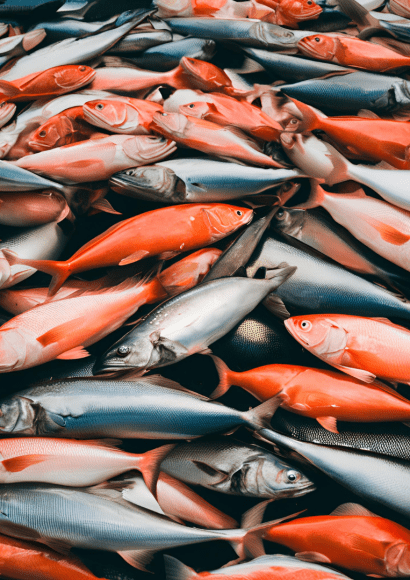
Fishing has been a crucial source of food and livelihood for humanity since ancient times. However, the exponential increase in demand for fish products, combined with unsustainable fishing practices, has led to the depletion of many fish populations. This not only affects endangered species but also triggers a cascade of negative consequences for marine ecosystems and human communities. In this article, we will explore in depth the consequences of overfishing and how they extend far beyond what we typically imagine.
Contents
What is Overfishing?🐟
To understand the consequences, it is essential to first comprehend what overfishing is. Overfishing occurs when more fish are caught than populations can naturally reproduce. This causes an ecological imbalance and can lead to the extinction of certain species if not addressed in time.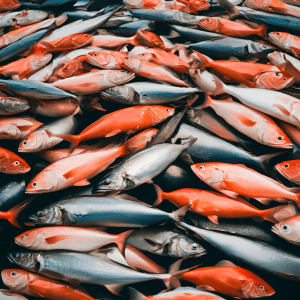
Types of Overfishing
Overfishing can be classified into different types, each with its own devastating effects:
-
- Biological Overfishing: Refers to catching fish at a rate that exceeds their reproductive capacity.
- Economic Overfishing: Occurs when the cost of catching more fish exceeds the economic value obtained.
- Ecological Overfishing: Involves the capture of species that play a vital role in maintaining ecosystem balance.
Consequences of Overfishing on Marine Ecosystems🐟
The consequences of overfishing on marine ecosystems are numerous and often irreversible. It is crucial to understand how these practices affect not only the target species but the entire marine environment.
Loss of Biodiversity
One of the most severe impacts of overfishing is the loss of biodiversity. When a species is overexploited, other species that depend on it for food or ecological balance are also affected. This can lead to a cascade of extinctions and the loss of essential ecosystem functions.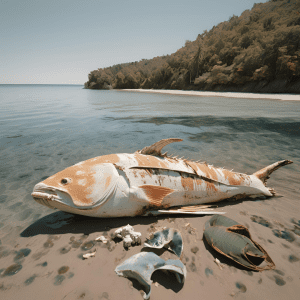
Disruption of Trophic Networks
Trophic networks represent the interconnection of species within an ecosystem. Overfishing breaks these connections, as the removal of a key species can cause a domino effect throughout the food chain, impacting predators and prey alike.
Proliferation of Invasive Species
The disappearance of natural predators due to overfishing facilitates the proliferation of invasive species, which can further destabilize the ecosystem. These invasive species often have a negative impact on native species and can change the composition of the habitat.
Impact of Overfishing on the Economy and Society🐟
Beyond marine ecosystems, overfishing has profound economic and social repercussions. Coastal communities and the global economy suffer the consequences of these unsustainable practices.
Decline in Income for Fishing Communities
Communities that depend on fishing as their primary source of income are the most affected by overfishing. As fish populations decline, catches decrease, leading to a loss of income and, in many cases, impoverishment.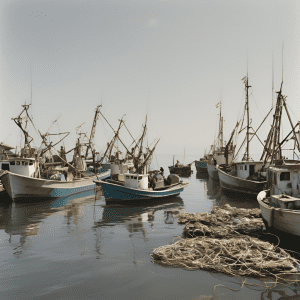
Rising Prices of Fish Products
With fewer fish available, the prices of fish products tend to rise. This affects not only consumers but also industries that rely on fish as raw material, such as restaurants and food manufacturers.
Migration and Social Conflicts
In some cases, overfishing has forced the migration of communities that can no longer sustain themselves through fishing. This not only leads to the disintegration of traditional cultures but can also cause social conflicts in the areas receiving these populations.
Strategies to Mitigate Overfishing🐟
While the consequences of overfishing are alarming, there are strategies to mitigate its effects and reverse the damage caused. Adopting sustainable practices is key to protecting marine resources.
Implementation of Fishing Quotas
Fishing quotas limit the amount of fish that can be caught in a given period, allowing populations to recover. These quotas must be based on scientific studies and adjusted periodically to ensure their effectiveness.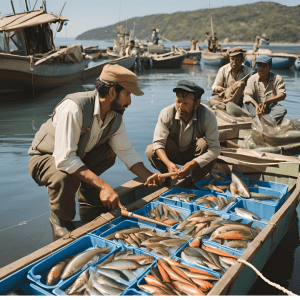
Marine Protected Areas
Establishing marine protected areas, where fishing is prohibited or restricted, is an effective measure to protect biodiversity and allow the regeneration of overexploited species. These areas act as natural reserves that benefit both ecosystems and fishing communities in the long term.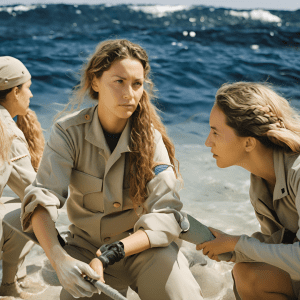
Sustainable and Selective Fishing
The adoption of sustainable fishing methods, such as selective fishing, helps minimize the impact on non-target species and reduces bycatch of unwanted species. This involves using nets and techniques that avoid the capture of juveniles and endangered species.
The Future of the Oceans: How to Move Forward?
The future of our oceans depends on the joint action of governments, communities, and consumers. It is imperative that we become aware of the consequences of overfishing and act before it is too late.
Awareness and Education
Education and awareness are essential to changing attitudes toward fishing. Consumers need to be informed about the source of their fish products and choose those that come from sustainable sources.
Effective Government Policies
Governments play a crucial role in implementing sustainable fishing policies. This includes strict regulation of fishing practices, continuous monitoring of fish populations, and promoting sustainable fishing.
International Collaboration
Since oceans know no borders, international collaboration is essential to addressing the problem of overfishing. Multilateral agreements and cooperation between countries can help protect migratory species and global marine ecosystems.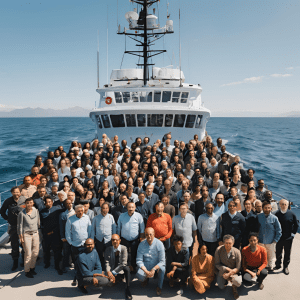
Popular Questions About Overfishing🐟
1. What are the main causes of overfishing?
The primary causes of overfishing include high consumer demand, particularly for popular fish species, technological advancements that enable large-scale, efficient fishing, lack of effective regulations or enforcement, and illegal, unreported, and unregulated (IUU) fishing. Additionally, economic incentives drive overfishing, as some communities rely heavily on fishing for income, leading to unsustainable practices to meet demand.
2. How does overfishing affect marine biodiversity?
Overfishing severely impacts marine biodiversity by reducing fish populations, particularly of key species, which disrupts ecological balance and food chains. This leads to the decline or extinction of some species, the proliferation of invasive species, and the collapse of ecosystems. The loss of biodiversity weakens the resilience of marine environments, making them more vulnerable to changes such as climate shifts.
3. Which countries are most affected by overfishing?
Countries with large coastal populations and heavy reliance on fishing are most affected by overfishing. These include China, Indonesia, India, and Peru, where both local consumption and global export markets drive excessive fishing. Additionally, many West African nations suffer due to illegal fishing by foreign fleets. The depletion of fish stocks in these countries threatens food security, economic stability, and marine ecosystems.


